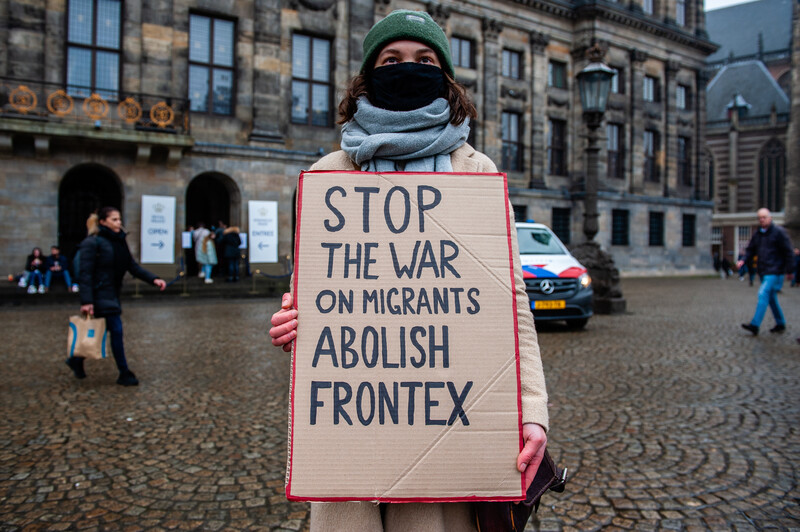Rights and Accountability 13 April 2022

Frontex has a reputation of cruelty toward refugees.
ZUMA PressThe war in Ukraine has been a godsend to quite a few scoundrels.
Bodies with reputations for cruelty transformed themselves into paragons of generosity almost overnight.
Frontex, the European Union’s border guard agency, is among those to have undergone a makeover. Arranging flights for people fleeing Ukraine, it now masquerades as a humanitarian organization.
Frontex has previously been better known for expelling refugees than offering them a ride to safety.No humanitarian spirit can be detected in documents about Frontex that I obtained under freedom of information rules. These papers show that it has discussed cooperating with Israel’s racist authorities over the past few years.
In July 2019, Frontex undertook what it called a “scoping visit” to Israel and the occupied West Bank.
Double standards
An internal Frontex report on the visit is replete with double standards.
Because Israel’s police force has its headquarters in occupied East Jerusalem, the EU has a policy of staying away from that building. The Frontex team and accompanying diplomats were happy, though, to hold discussions with the police elsewhere and Israel’s foreign ministry was deemed an acceptable venue.
Contrary to what EU briefing papers imply, Israel’s police do not magically become separate from “the occupation” when they leave their headquarters.
Israel’s police are a colonial force that behaves in a similarly brutal fashion to the military.
An Israeli government minister confirmed only this week that the police have taken part in the latest invasion of Jenin refugee camp. EU diplomats – or at least those who can read maps – know that Jenin is inside the West Bank.
The report of the Frontex visit – see below – notes that Israel is interested in a “strategic peer-to-peer partnership” with the agency. Under it, Israel’s authorities would be “contributors rather than recipients” and be trainers rather than trainees, the document suggests.
According to the Frontex report, the agency took a “very cautious approach” on its visit as “border security issues are extremely sensitive and politically charged in the region.”
Yet Frontex has subsequently taken steps toward the kind of cooperation which Israel desires. In 2020, the agency signed a contract worth $118 million to lease Israeli-made drones.
The two manufacturers of these drones – Elbit Systems and Israel Aerospace Industries – have tested their weapons on civilians in Gaza.
An opinion piece in the Tel Aviv daily Haaretz last month criticized Elbit for funding a book that distorts the Holocaust.
The book – written by military analyst Dimitar Nedialkov – claims that Bulgaria’s army saved Jews during World War II. The truth, as the Haaretz article points out, is that the Bulgarian authorities, including the army, deported Jews and handed them over to Nazi Germany.
“Migration risk”
On paper, the EU is resolutely opposed to Holocaust revisionism.
Will it now punish Elbit for funding the circulation of lies?
Elbit benefits from EU research subsidies. Will the firm be told that it is no longer eligible for such grants?
I wouldn’t bet on it.
The report on the aforementioned Frontex visit indicates that the agency is bigoted toward Palestinians.
It refers to the possibility of Palestinians leaving Gaza via Egypt as a “migration risk.” People living under a merciless blockade are not deemed worthy of solidarity but instead treated as a “risk” by white Europeans.
That language chimes with the approach taken by EU states such as Belgium in recent years. While Belgium used to generally grant refugee status to Palestinians on request, it changed that policy in 2018 and has frequently issued refusals since then.
The Belgian U-turn has taken place against the backdrop of rising hostility to refugees.
That hostility remains widespread in Europe, despite the outpouring of sympathy with Ukrainians.
To Frontex, all refugees are equal but some are clearly more equal than others.





